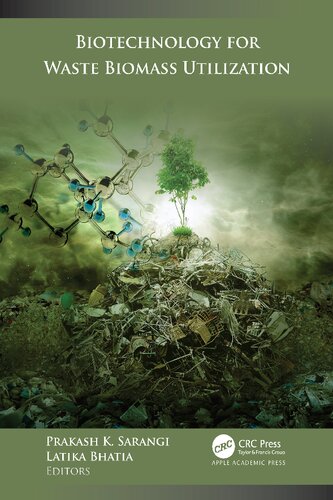

Most ebook files are in PDF format, so you can easily read them using various software such as Foxit Reader or directly on the Google Chrome browser.
Some ebook files are released by publishers in other formats such as .awz, .mobi, .epub, .fb2, etc. You may need to install specific software to read these formats on mobile/PC, such as Calibre.
Please read the tutorial at this link: https://ebookbell.com/faq
We offer FREE conversion to the popular formats you request; however, this may take some time. Therefore, right after payment, please email us, and we will try to provide the service as quickly as possible.
For some exceptional file formats or broken links (if any), please refrain from opening any disputes. Instead, email us first, and we will try to assist within a maximum of 6 hours.
EbookBell Team

0.0
0 reviewsThis volume focuses on how waste biomass can be transformed into useful biomaterials, food and feed, fuel, and chemicals by using various processes such as chemical, physical, thermal, biological, and biotechnological procedures.
Biomass from biowastes, such as agriculture crop residues, wood processing residues, forest residues, food waste, industrial waste, and municipal solid waste, have emerged as potential substrates for bioenergy production. This volume explores the key features of biotechnology for waste biomass utilization, presenting scientific and technical literature on sustainable waste biomass management as well as for biomass conversion for biofuels, chemicals, and other new commercial products. It discusses a variety of novel biotechnical applications and interventions, including microbial fermentation and anaerobic digestion, biotechnological modes of xylooligosaccharides production, multifaceted utilization of microalgal biomass, vermiculture and vermicomposting, and more.
Key features:
With chapters from eminent researchers who have significant global experience in the field of waste biomass management, this volume delivers a wealth of valuable information for researchers involved in bioenergy utilization. It will also be an essential source for academicians, researchers, economists, policymakers, and policy analysts.